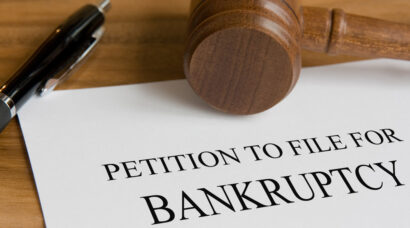Nassau and Suffolk County Property Division Lawyer
New York City Division of Property / Divorce / Marital Property / Real Estate
When there is little or no marital property, no children, no issues of alimony or spousal maintenance, amicable spouses can usually obtain a quick divorce. Sometimes divorces are complex and litigated. Some divorces involve a union of many years with considerable marital property, both personal property and real estate, children, family businesses, large or concealed debts, trust funds, real estate in other states, joint and separate accounts, investments, insurance, pensions, and other assets. In these complex situations, the parties often cannot divide their property on their own and therefore may require the assistance of experienced legal counsel for its ultimate division.
Equitable Distribution
Most states use an equitable distribution system to divide marital property. States that use this system attempt to divide the property fairly between the spouses. That doesn’t mean equally. The goal is to achieve an equitable, or fair, distribution.
Equitable distribution has three steps: 1) categorizing property as marital or separate assets; 2) evaluating the property; and 3) distributing it to each spouse. Timing is often the most important element to the determination of martial assets. Usually, any property acquired from the date of the marriage through the date of separation will be included in the "martial estate" from which assets will be distributed. There is an exception to this rule. Funds received from personal injury awards, disabilities, gifts and inheritances kept in separate accounts are not considered marital property.
Courts generally favor increasing the marital estate. Any spouse claiming the existence of separate property needs clear evidence to support their position. Usually, separate property includes the property each spouse had before the marriage or acquired during the marriage by gift or inheritance, including personal injury damage awards. In order to establish that something is separate property, it must have stayed within exclusive ownership and control of one spouse, which can be very difficult to prove. If separate property is combined with joint property a court may include that property among the other property divided upon divorce.
There are several factors court use to determine how to arrive at an equitable distribution of the property. These include:
- Relative Earning Power of Each Spouse. A spouse with a lower earning power may receive a higher percentage of marital assets.
- Actual Earnings. When one spouse was more responsible for the creation of marital assets, courts may look to compensate that spouse in some way for the value of the assets created, particularly in awarding ownership of family-owned businesses.
- Homemaker Services. Courts now recognize the value that a stay-at-home parent brings to a marriage and seeks to reward that contribution at marital termination.
- Waste of Assets. If one spouse has consumed or wasted more money during the marriage, a court may assign "economic fault" to that spouse upon marital dissolution. Other considerations include the length of the marriage, the age and health of the two spouses, tax consequences on property division, and the terms of any premarital agreements.
Property to Be Divided
Certain kinds of property often generate the most controversy at divorce. Divorcing couples need to be aware of these assets and the issues their division may present.
- Family Home. The primary residential-property owned by the divorcing couple is often the marriage’s largest asset. Dealing with its division can be complicated, particularly when there are children involved. Courts often favor allowing the custodial parent to retain the home. Doing so may requires complicated arrangements to ensure that the spouse who leaves receives adequate compensation for the home’s value as well as provisions for ongoing mortgage payments, tax liabilities and upkeep of the home. When these issues cannot be resolved, the couple may be forced to sell the home and split the proceeds.
- Pensions. Pensions often follow the family home as the second largest marital asset. When there are other income sources sufficient to compensate the non-pension holder, courts may leave vested pension rights in the spouse who earned it. Otherwise, under a federal law that makes division of pensions easier, a court in a divorce case may enter a Qualified Domestic Relations Order (QDRO) requiring the administrator of the pension to make payment to both the worker and their former spouse.
- Family-Owned Businesses. When couples work together in a family owned business, division of the business presents complex allocation and valuation problems. First, the couple or the court must decide who gets the business. Then, there must be a determination of its worth, which can require costly evaluation by outside experts. As with family homes, if there are not enough marital assets to adequately compensate the non-retaining spouse, there may be the necessity of a forced sale or long-term buy-out.
Conclusion
Many couples have a difficult time reaching an agreement about how to divide their property. Because the specific rules in each state vary significantly and because the division of property depends on the complexity of your assets and liabilities, it is important to consult with an experienced family law attorney for assistance if you anticipate the division of property is likely to be an issue of controversy in your divorce.
Contact An Experienced Long Island and New York City Property Division Lawyer Today
Contact us to discuss your case and our qualifications to represent you. Feel free to call toll free, any time, day or night, at 1-800-344-6431 or contact us at 718-350-2802. You can also reach us in Nassau County at 516-561-6645.
We welcome your inquires.
The attorneys at the Law Offices of Schlissel DeCorpo represent clients in the courts on Long Island, in Nassau and Suffolk Counties. In addition, our law firm has extensive experience in representing clients in the five boroughs of the City of New York, Queens, Kings, Richmond, New York County and the Bronx. Our lawyers also litigate cases in Westchester County.
Tags: division of property, nassau county property, property law, family law, community property, social issues, prenuptial agreement, marital property, personal property, manhattan, divorce attorney, nassau county, real estate, quick divorce, property, marriage, inheritance, divorce












